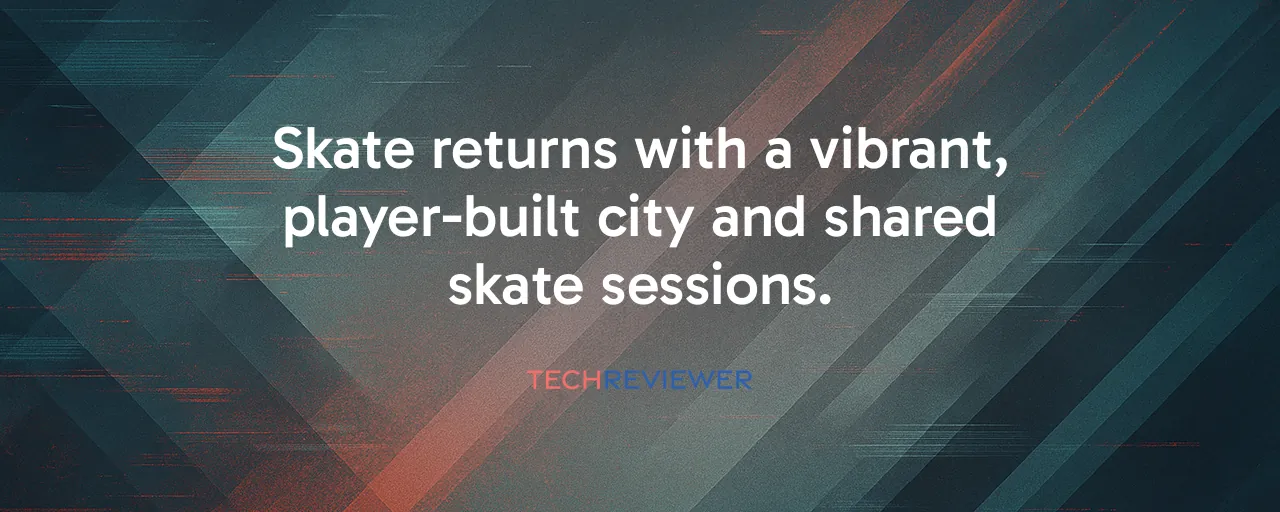A Long-Awaited Return to the Board
After 15 years, Skate is back, and it's hitting the pavement hard. Electronic Arts and Full Circle are launching the series' revival in Early Access on September 16, 2025, inviting players to San Vansterdam, a sprawling virtual city built for shredding. The game, simply called Skate, ditches the traditional boxed model for a free-to-play, always-online sandbox. Fans who've waited since Skate 3 in 2010 are buzzing, and for good reason: it's a bold leap into a shared, player-driven world powered by the Frostbite engine, a true evolution for the series.
What makes this comeback stand out? It's the promise of a living city where up to 150 players can grind, flip, and create together. Months of Insider play-tests have shown off a redesigned Flick-It control system, smoother physics, and a staggering 140 challenges to keep things lively. But with great ambition comes scrutiny, especially around the game's online-only setup and monetization plans.
Building San Vansterdam Together
The heart of Skate lies in its community-driven design. San Vansterdam is a canvas, offering more than just a backdrop. Players can place obstacles, design skateparks, and host events like 'Jam Sessions' in real-time collaboration zones. During Insider tests, spontaneous 'mega contests' emerged, with dozens of players crafting massive trick battles that echoed real-world skatepark vibes. These moments show how Skate captures the creative chaos of skate culture, letting players shape the city as much as they ride it.
The Frostbite engine powers this freedom with crisp physics and a 60 Hz server tickrate, ensuring tricks feel responsive. Cross-play across PC, PlayStation, and Xbox unites friends, while cross-progression keeps your progress seamless. Full Circle's developer diaries highlight how player feedback has fine-tuned everything from wall-climbs to parkour additions, making San Vansterdam feel alive.
The Free-to-Play Catch
Here's where things get tricky. Skate's free-to-play model opens the door to casual players, but it's sparked debate among Skate 3 veterans. The always-online requirement means no offline play, which could alienate players in regions with shaky internet. Then there's the monetization. While Full Circle promises cosmetic-only microtransactions, like skins and boards, some worry about pricey battle passes or quality-of-life items locked behind paywalls. European regulators are already eyeing live-service games for transparency, which could force EA to clarify pricing early.
The context isn't all rosy. Insider feedback flagged occasional lag affecting trick precision, especially at high ping. Last-gen consoles, like PS4 and Xbox One, sometimes struggle with map streaming. These hiccups could dampen the experience for players expecting Skate 3's polish right out of the gate.
Learning From the Competition
Skate isn't alone in the virtual skatepark. Rivals like Creā-ture's Session and Easy Day's Skater XL have carved out niches with hyper-realistic sims, while Activision's Tony Hawk remakes lean on nostalgia. Skate's social sandbox distinguishes it. Where Session emphasizes solo precision, Skate's 150-player lobbies foster chaos and camaraderie. A Twitch streamer's tutorial economy, mirroring Skate 3's filmer culture, shows how players are already building communities around trick guides and highlight reels.
That said, competitors offer lessons. Session's offline mode appeals to purists, something Skate lacks. Tony Hawk's straightforward pricing avoids the microtransaction maze. Full Circle could borrow from these to balance accessibility and depth, especially as Skate eyes a mobile port in late 2026.
A Cultural Kickflip
Skate's revival serves as a nod to skate culture itself, extending beyond just gaming. Partnerships with pro skaters and streetwear brands aim to mirror Fortnite's cross-media flair, potentially bringing virtual concerts or real-world skatepark funding. The game's iconic soundtracks, a hallmark of the series, could feature indie bands, amplifying its cultural pull. But there's a tightrope to walk. Monetizing skate culture risks accusations of appropriation, and EA will need robust community tools to curb harassment in bustling lobbies.
Looking ahead, Skate's Early Access feels like a foundation. Quarterly city expansions and esports-style trick contests are on the horizon, promising to keep San Vansterdam evolving. If Full Circle nails the balance between creativity, fairness, and polish, Skate could redefine how we play, and live, skateboarding.
